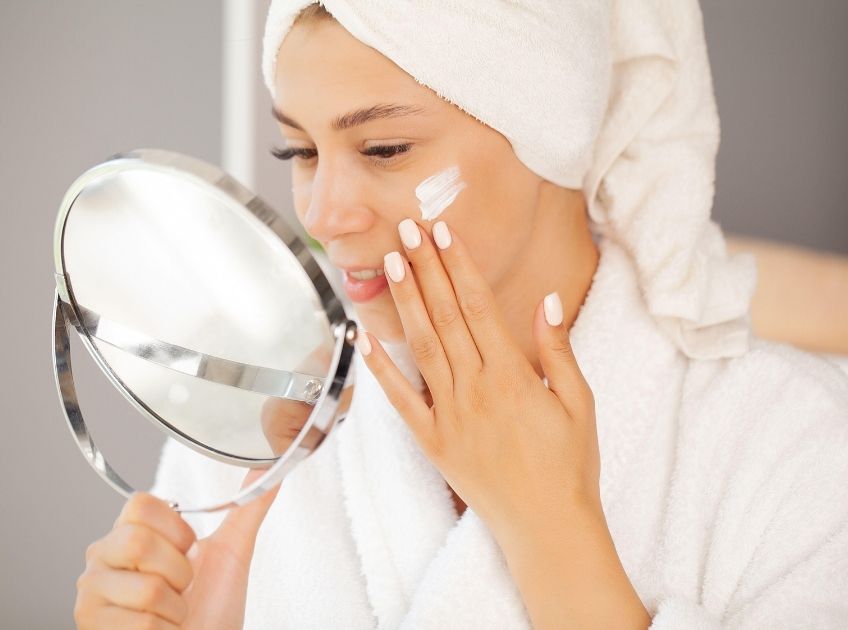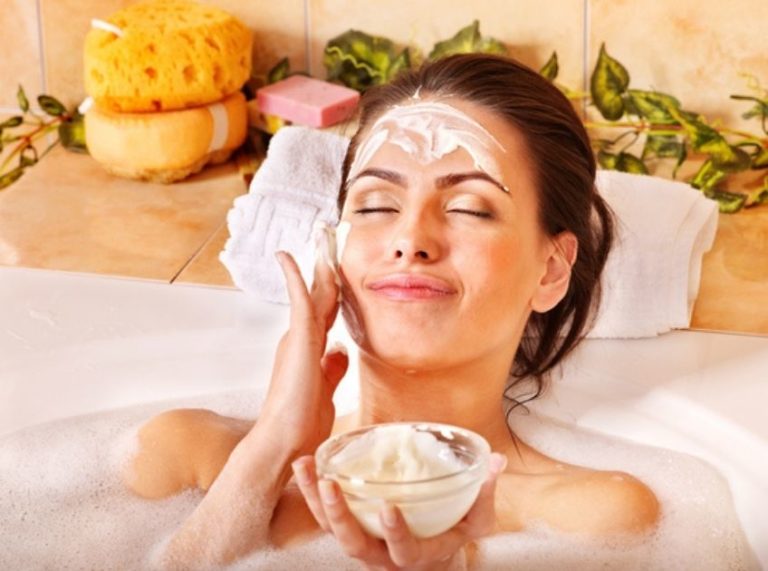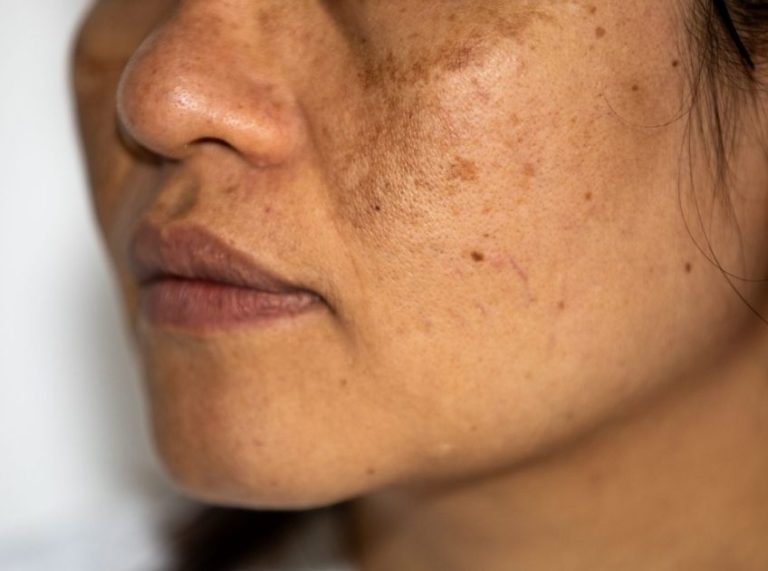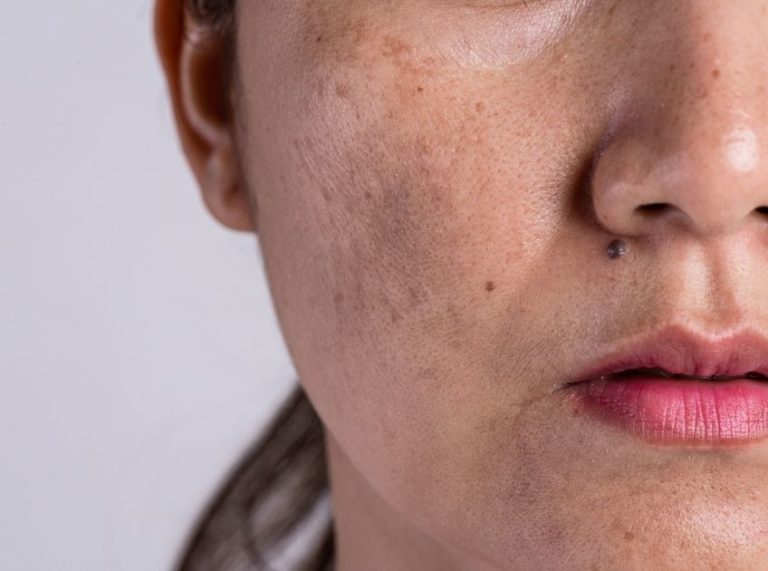
Important: This article is for informational purposes only. Please read our full disclaimer for more details.
If your skin tends to react to new products with redness, itching, or dryness, you’re not imagining it—sensitive skin requires extra care. Many commercial moisturizers contain alcohols, artificial fragrances, and preservatives that can trigger irritation or disrupt your skin’s natural barrier.
Homemade moisturizers, on the other hand, allow you to control every ingredient—ensuring your skin gets only pure, nourishing hydration. Using plant-based butters, oils, and humectants like aloe vera or honey, you can create lightweight yet effective formulas that soothe and strengthen your skin barrier.
According to dermatologists, the key to caring for sensitive skin lies in balancing hydration, reducing inflammation, and protecting the barrier with gentle, non-comedogenic ingredients. Here are three homemade moisturizers designed with that in mind.
Article Contains
3 Calming and Hydrating DIY Moisturizers for Sensitive Skin
1. Aloe Vera & Cucumber Gel Moisturizer
Best for: Cooling and soothing irritated or redness-prone skin.
Ingredients:
- 2 tbsp aloe vera gel (fresh or organic store-bought)
- 1 tbsp cucumber juice (strained)
- 1 tsp rosewater
- ½ tsp jojoba oil
How to make:
- Mix aloe vera gel and cucumber juice in a bowl.
- Add rosewater and jojoba oil; stir until smooth.
- Store in a glass jar and refrigerate for up to one week.
Why it works:
- Aloe vera and cucumber both contain anti-inflammatory and hydrating compounds that calm irritation and redness. Jojoba oil mimics the skin’s natural sebum, offering light moisture without clogging pores.
Research Insight: A 2018 Journal of Clinical and Aesthetic Dermatology study confirmed that aloe vera improves hydration and supports faster recovery of damaged skin barriers—making it ideal for sensitive complexions (1).
2. Shea Butter & Oat Infusion Cream
Best for: Dry, flaky, or eczema-prone sensitive skin.
Ingredients:
- 2 tbsp shea butter
- 1 tbsp almond oil
- 1 tbsp finely ground oatmeal
- 1 tsp vitamin E oil
How to make:
- Melt shea butter in a double boiler.
- Add almond oil and oatmeal powder once cooled slightly.
- Stir in vitamin E oil and whip until creamy.
- Store in a clean container and use within 3 weeks.
Why it works:
- Oatmeal is rich in beta-glucans and avenanthramides, known for reducing inflammation and itchiness. Shea butter deeply nourishes the skin, while vitamin E acts as an antioxidant that repairs barrier damage caused by dryness or irritation.
Scientific Support: Research published in the Journal of Drugs in Dermatology shows that colloidal oatmeal improves skin barrier function and reduces irritation in people with sensitive or eczema-prone skin (2).
3. Honey & Coconut Oil Moisturizing Balm
Best for: Very dry, dull, or rough sensitive skin.
Ingredients:
- 1 tbsp raw honey
- 1 tbsp coconut oil
- ½ tsp beeswax (optional for thickness)
- A few drops of chamomile essential oil (optional)
How to Make:
- Melt beeswax and coconut oil together over low heat.
- Add honey and stir until blended.
- Allow to cool before transferring to a small jar.
- Apply a thin layer to clean skin.
Why it works:
- Honey is a natural humectant, meaning it attracts and retains moisture. Coconut oil provides rich hydration and contains antibacterial properties, which can help prevent irritation. Together, they lock in moisture and restore smoothness.
Study Highlight: A 2017 review in Oxidative Medicine and Cellular Longevity emphasized honey’s antioxidant and wound-healing properties, making it suitable for sensitive, easily irritated skin (3)(4).
Frequently Asked Questions (FAQ’S)
1. Can homemade moisturizers replace store-bought ones?
A. Yes, if made correctly. Homemade moisturizers can be just as effective—often gentler—than commercial ones. However, since they lack preservatives, they use small batches and refrigerate for freshness.
2. How often should I apply these moisturizers?
A. Apply twice daily—morning and night—after cleansing and toning to lock in hydration and strengthen your skin barrier.
3. Are essential oils safe for sensitive skin?
A. Some, like chamomile or lavender, can be soothing in tiny amounts, but always perform a patch test first. If your skin reacts, omit them entirely.
Sensitive skin thrives on simplicity. By using pure, nutrient-rich ingredients like aloe vera, shea butter, oatmeal, and honey, you can deeply nourish your skin without triggering irritation.
Homemade moisturizers not only restore hydration—they rebuild your skin’s natural defenses, leaving it softer, calmer, and more radiant over time. Remember, consistency and gentle care are your best allies in maintaining healthy, glowing, sensitive skin.















